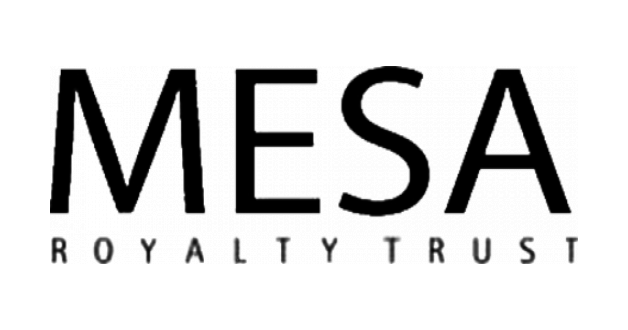Investing in real estate penny stocks can offer exciting opportunities for retail investors seeking growth and income potential at an affordable price point.
These stocks, trading below $5, provide a way to enter the real estate sector with limited capital.
A low price point makes it easier to buy in, even if you have a limited budget.
By adding real estate stocks to your portfolio, you can reap the benefits of investing in this asset class without actually having to buy property.
However, penny stocks come with higher volatility and risk, especially in cyclical industries like real estate.

TL;DR: Best Real Estate Penny Stocks
- Anywhere Real Estate Inc. (NASDAQ: HOUS)
- Mesa Royalty Trust (NYSE: MTR): Mineral and royalty interests tied to energy assets.
- MDJM Ltd. (NASDAQ: MDJM): China-based real estate marketing and planning services.
- Lument Finance Trust Inc. (NYSE: LFT): Commercial mortgage REIT with a floating-rate loan portfolio.
- Ready Capital Corporation (NYSE: RC): Commercial real estate lender focused on small-to-medium loans.
- Presidio Property Trust Inc. (NASDAQ: SQFT): Diversified REIT with office, retail, and industrial assets.
- New York Mortgage Trust (NASDAQ: NYMT): Residential mortgage REIT with diversified loan portfolio.
- Ohmyhome Ltd. (NASDAQ: OMH): Southeast Asia-focused real estate tech platform under $1.
Hot Real Estate Penny Stocks to Buy Now
Anywhere Real Estate Inc. (NASDAQ: HOUS)
Overview:
Anywhere Real Estate Inc. is a leading technology-powered real estate services company, operating through a diverse network of brokerages, franchises, and proprietary brands.

Anywhere’s mission centers on transforming the real estate transaction process by integrating advanced technology and data-driven solutions designed to enhance both agent productivity and customer experience.
The company’s portfolio includes well-known brands such as Century 21, Better Homes and Gardens Real Estate, and Coldwell Banker.
This diversified approach allows Anywhere to serve multiple market segments and cater to a broad customer base, positioning it well in a competitive real estate landscape.
Growth Catalysts:
Anywhere’s growth is driven by its ongoing digital transformation initiatives, which streamline real estate transactions and reduce friction points traditionally associated with buying and selling homes.
The company invests heavily in proprietary technology platforms that facilitate virtual tours, online document management, and real-time transaction tracking, enhancing convenience for both agents and consumers.
Additionally, the U.S. housing market’s continued demand supports strong transaction volumes, while Anywhere’s franchise model allows for scalable expansion with relatively low capital expenditure.
The rise in remote work and evolving consumer expectations has further accelerated the adoption of technology-driven solutions, providing a favorable tailwind.
Strategic acquisitions and partnerships aimed at broadening service offerings also contribute to the company’s long-term growth prospects.
Risks:
Anywhere faces intense competition from both traditional brokerages and emerging tech-first platforms.
Market slowdowns or housing affordability challenges can impact transaction volumes and revenue.
The company’s success also depends on its ability to innovate and integrate new technologies effectively.
Additionally, macroeconomic factors such as interest rate hikes can dampen real estate activity.
Conclusion:
Anywhere Real Estate offers a blend of traditional brokerage strength and technological innovation, making it a notable penny stock in real estate services.
Its growth depends on market conditions and continued digital transformation success, warranting careful consideration by investors.
Mesa Royalty Trust (NYSE: MTR)
Overview:
Mesa Royalty Trust is a real estate investment trust that owns mineral and royalty interests primarily related to energy and real estate assets.
Unlike traditional REITs that focus on physical properties such as office buildings or apartments, Mesa generates income through royalties from the extraction of natural resources like oil and gas.

This hybrid business model positions Mesa uniquely between real estate and energy investments, providing investors exposure to energy commodity prices alongside steady royalty income.
Growth Catalysts:
Mesa’s growth is primarily tied to the continued demand for energy and the cash flow generated from existing mineral and royalty interests.
As global energy needs remain robust, particularly for oil and natural gas, the royalties collected by Mesa tend to provide a relatively stable income stream.
The trust benefits from its low operational costs since it does not directly manage or operate the extraction activities.
Additionally, fluctuations in commodity prices can increase revenue during energy price upswings, offering potential upside to distributions.
The trust’s diversified portfolio of mineral interests across various geographical regions also reduces dependency on any single asset or jurisdiction, mitigating some risk.
Risks:
Mesa Royalty Trust is subject to risks primarily linked to the volatility of energy commodity prices.
Sharp declines in oil or gas prices can reduce royalty payments and negatively impact income.
Regulatory changes aimed at curbing fossil fuel production or environmental policies could also adversely affect the underlying assets.
The trust’s income is additionally vulnerable to operational disruptions at producing wells, such as natural disasters or mechanical failures, which could temporarily reduce royalty streams.
Moreover, as a hybrid vehicle straddling real estate and energy sectors, it may not offer the same stability as traditional REITs, making it less predictable for conservative investors.
Conclusion:
Mesa Royalty Trust offers a distinctive real estate-related investment opportunity that provides exposure to energy royalties with relatively low operating costs.
For investors comfortable with commodity price fluctuations and seeking diversified income streams beyond typical property REITs, Mesa can be an intriguing addition.
However, the trust’s income volatility and sector-specific risks warrant careful consideration.
Best Real Estate Penny Stocks to Buy Now
MDJM Ltd. (NASDAQ: UOKA)
Overview:
MDJM Ltd. operates primarily in the Chinese real estate market, offering real estate marketing and planning services to developers.

Its business model centers on leveraging market knowledge and customer data to deliver targeted marketing campaigns.
Growth Catalysts:
MDJM stands to benefit from China’s ongoing urbanization and real estate development, which continues to drive demand for effective marketing and sales support services.
Despite the regulatory tightening and cooling measures implemented by the Chinese government to stabilize the property market, demand for professional services in real estate transactions remains robust.
Additionally, the company’s efforts to expand into digital platforms and integrate technology into its marketing services could open new revenue streams and improve margins.
As real estate developers seek more sophisticated marketing approaches, MDJM’s role becomes increasingly vital.
Risks:
MDJM’s concentration in China exposes it to significant regulatory and economic risks.
Government policies aimed at controlling housing prices or restricting lending can adversely affect property sales and, by extension, the company’s business volume.
Moreover, China’s economic growth slowdown could further pressure real estate developers, curbing their marketing budgets.
Exchange rate volatility and geopolitical tensions add layers of uncertainty for investors in foreign-focused penny stocks.
Conclusion:
As it stands, MDJM offers retail investors a unique play on the Chinese real estate services sector, potentially benefiting from urban growth and the modernization of marketing efforts.
However, its exposure to regulatory changes and economic cycles in China means investors should proceed cautiously, balancing potential upside with macro risks.
Ready Capital Corporation (NYSE: RC)
Overview:
Ready Capital Corporation is a commercial real estate finance company specializing in originating and acquiring loans primarily for small- and medium-sized commercial properties.

Growth Catalysts:
Ready Capital’s niche focus on small and medium commercial loans provides exposure to a broad market segment often underserved by larger lenders.
The company’s diverse loan portfolio and geographic spread help mitigate localized risks. Its servicing rights business generates steady fee income that is less sensitive to market cycles.
Additionally, Ready Capital has pursued strategic acquisitions to grow its servicing platform and enhance its income streams.
The anticipated economic growth and increased demand for commercial real estate financing can drive new loan originations.
Risks:
As with most REITs, Ready Capital faces risks common to commercial real estate lenders, including credit defaults and declining property values.
The small- and medium-sized property segment can be vulnerable to economic slowdowns and sector-specific disruptions.
Interest rate volatility impacts both loan yields and funding costs.
Also, regulatory scrutiny on mortgage lending practices can affect operational flexibility and costs.
Conclusion:
Ready Capital offers a compelling blend of commercial real estate loan origination and servicing revenue, backed by a focused management strategy.
Investors interested in a diversified mortgage finance company should consider the sector’s cyclical nature and credit risk carefully.
Best REIT Penny Stocks To Add
Presidio Property Trust (NASDAQ: SQFT)
Overview:
Presidio Property Trust is a diversified REIT owning a mix of office, retail, industrial, and residential real estate assets across the United States.

Growth Catalysts:
A diversified asset base provides a buffer against sector-specific downturns, enabling it to weather economic fluctuations better than single-sector REITs.
The company has focused on improving property occupancy and executing value-add strategies like renovations and leasing enhancements to increase cash flow.
Geographic diversification across growing U.S. markets further supports stable income and potential capital appreciation.
The gradual economic recovery and evolving consumer behavior favor sectors like industrial and multifamily housing, areas where Presidio holds significant exposure.
Risks:
Even with a diverse set of offerings, Presidio faces challenges from the ongoing structural shifts in office and retail real estate, particularly the rise of remote work reducing office space demand and the evolving retail landscape impacted by e-commerce.
Rising interest rates could increase borrowing costs, pressuring profitability. Tenant credit risk and local economic conditions may affect rental income stability.
Conclusion:
Presidio Property Trust is a solid choice for investors seeking diversified real estate exposure within the penny stock universe.
Its portfolio mix and active management position it for steady income, though sector-specific headwinds warrant vigilance.
Lument Finance Trust (NYSE: LFT)
Overview:
Lument Finance Trust is a commercial real estate mortgage REIT that specializes in originating and acquiring commercial mortgage loans and mortgage-related assets.

As such, the company’s income primarily derives from interest payments on its loan portfolio, making it a debt-focused player in the real estate market.
Growth Catalysts:
Lument is positioned to capitalize on the recovery of the commercial real estate sector post-pandemic, especially as economic activity normalizes and property demand stabilizes.
The company’s focus on floating-rate loans provides a natural hedge against rising interest rates, potentially boosting income when rates climb.
An ambitious management team has also pursued disciplined underwriting and diversified asset classes, enhancing risk management and portfolio quality.
Additionally, the REIT’s access to capital markets supports growth through new loan originations and acquisitions.
Risks:
As a mortgage REIT, Lument is inherently sensitive to interest rate fluctuations, credit risks, and borrower defaults.
Economic downturns that weaken tenants’ ability to pay rent could cascade into loan performance issues.
The commercial real estate market is also undergoing structural changes, such as shifts in office space demand due to remote work trends, which may impact property valuations and loan collateral.
Rising interest rates, while beneficial for floating-rate assets, can increase funding costs, squeezing margins if not properly managed.
Conclusion:
Lument Finance Trust presents an attractive income opportunity tied to commercial real estate debt.
Its floating-rate loan focus and disciplined management are positive factors.
Nevertheless, investors should be mindful of economic cycles, credit quality, and sector-specific changes influencing mortgage REITs.
Best Mortgage Real Estate Penny Stocks
New York Mortgage Trust (NASDAQ: NYMT)
Overview:
New York Mortgage Trust (NYMT) is a mortgage real estate investment trust (REIT) primarily focused on investing in residential mortgage loans and other real estate-related assets.
Established to generate income through interest payments and dividends, NYMT operates by acquiring and managing a diversified portfolio of mortgage-backed securities (MBS) and related investments.
The company’s primary goal is to provide attractive risk-adjusted returns to shareholders through income distribution while managing risk exposure.
NYMT’s portfolio includes both agency-backed and non-agency residential mortgage loans, giving it a balanced exposure to different segments of the mortgage market.
Growth Catalysts:
As it stands, NYMT’s growth potential is closely tied to trends in the residential mortgage market and the broader housing sector.
Homeownership remains a key aspiration for many Americans, and demand for residential mortgages is expected to stay steady, supporting the value of mortgage-backed securities.
NYMT’s experienced management team actively manages interest rate risk through hedging strategies, aiming to protect income during periods of rising rates.
Additionally, the company’s diversified portfolio, spanning various mortgage types and credit qualities, helps to mitigate concentration risk and enhance stability.
The company also seeks to capitalize on opportunities arising from market dislocations or shifts in credit spreads, buying undervalued assets that may appreciate over time.
Its consistent dividend payments appeal to income-focused investors, especially in a low-interest-rate environment.
Risks:
Mortgage REITs like NYMT face significant sensitivity to interest rate changes, which can impact borrowing costs and asset valuations.
Housing market downturns or rising delinquency rates can negatively affect mortgage-backed securities’ performance.
Additionally, regulatory changes around mortgage lending or servicing could affect earnings.
Conclusion:
New York Mortgage Trust offers investors exposure to the residential mortgage market with the potential for attractive income through dividends.
Its active risk management and diversified portfolio provide some protection against market volatility.
However, investors should be aware of the inherent interest rate sensitivity and credit risks associated with mortgage REITs before investing.
Real Estate Penny Stocks Under $1
Ohmyhome Ltd. (NASDAQ: OMH)
Overview:
Ohmyhome Ltd. is a Singapore-based real estate technology company listed on NASDAQ that provides end-to-end property transaction services, including brokerage, mortgage, and renovation solutions.
While its primary market focus is Southeast Asia, Ohmyhome represents an interesting opportunity for U.S. investors seeking exposure to the fast-growing proptech sector in emerging markets.
The company leverages technology to streamline the buying, selling, and renting of properties, aiming to reduce traditional inefficiencies and costs associated with real estate transactions.
Its platform empowers consumers with digital tools for property search, virtual tours, online documentation, and mortgage applications, making the process more transparent and accessible.
Growth Catalysts:
Ohmyhome anchors its growth prospects in the rapid urbanization and digitization trends in Southeast Asia, a region where real estate markets remain fragmented and underserved by technology.
The rising middle class and increasing internet penetration fuel demand for digital real estate services.
Its comprehensive platform allows it to capture multiple revenue streams from brokerage commissions, mortgage facilitation, and home renovation services.
Expansion into adjacent markets and diversification of service offerings further bolster growth potential.
Additionally, the company’s listing on NASDAQ enhances access to capital and increases visibility among global investors, supporting future strategic initiatives and geographic expansion.
Risks:
As an international penny stock, Ohmyhome carries elevated risks. The company operates in a competitive and fragmented market with numerous regional and global proptech players.
Regulatory environments across different countries introduce complexity and potential compliance costs.
Economic volatility and political uncertainties in emerging markets can affect consumer confidence and transaction volumes.
Being a relatively young company, Ohmyhome faces execution risks related to scaling operations, technology adoption, and profitability.
Additionally, the stock’s roughly $1 price level signals heightened market skepticism, contributing to liquidity challenges and share price volatility.
Conclusion:
Ohmyhome Ltd. offers a speculative but compelling opportunity in the growing Southeast Asian proptech space, blending real estate services with digital innovation.
For investors seeking to diversify internationally and willing to embrace the risks of a developing market penny stock, OMH presents potential upside.
However, thorough due diligence and a strong risk appetite are essential given the company’s early-stage status and market complexities.
Why Buy Real Estate Stocks?
The real estate market has been on a wild ride over the past few years.
During the COVID-19 pandemic, the real estate market took a significant downturn.
This was especially true for commercial mortgage-backed securities, as lockdown measures prevented workers from going into their offices.
However, vaccination rates around the world are slowly increasing, which means that people are going back to the office.
This means that both commercial and residential real estate prices are bouncing back, making this a great time to invest in real estate.
What You Should Know About REITs
One specific type of real estate stock to consider investing in is REITs.

This means that investors receive consistently high dividend payments, which can serve as an ongoing form of income in addition to the returns that the stock generates.
It’s important to keep in mind that penny stocks do come with their own unique risks — most notably low volume and increased volatility.
So they might not be the right choice for new traders.
However, if you have investment experience and can time your investments well, you could potentially benefit from the ups and downs of these stocks.
Where to Buy Real Estate Penny Stocks?
If you want to buy real estate penny stocks we recommend you take a look at Robinhood and Webull first.
Both of these are solid platforms that have a lot to offer investors looking to dive into the world of REITs.
However, if you want to trade over-the-counter (OTC) penny stocks, you’ll need to find a broker that allows for that type of investment.
Robinhood and Webull only let you trade stocks found on major exchanges.
Real Estate Penny Stocks: Features to Look for
Penny stocks in general can be a bit dicey to invest in, but there are ways to identify more promising opportunities. Consider these factors before purchasing any shares:
Deals on the Horizon: Look out for any real estate penny stocks with property agreements in the works. The moment a deal goes through, that small share price can shoot up like a rocket.
This especially holds true when those deals are for large-scale buildings or residential neighborhoods in affluent sectors.
Strong Net Income: Make sure any real estate company you’re interested in has solid net rental income. Any firm needs to have financials in good standing to cover future purchases and costs of doing business. If possible, check back several years for income growth as well.
Low Debt: It’s not terribly uncommon to see real estate companies racking up debt as they scoop up properties. That debt should be offset by equity and a robust plan for future growth.
Frequently Asked Questions
How Do I Evaluate a Real Estate Penny Stock?
Evaluation involves weighing a particular stock’s positive attributes against its negatives. It’s helpful to analyze the company’s business model, asset quality, income sources, dividend sustainability, growth prospects, and risks like market volatility and sector-specific challenges.
What Risks Are Involved in Investing in Real Estate Penny Stocks?
Real estate penny stocks do come with a handful of risks. These include high price volatility, liquidity constraints, economic sensitivity, interest rate fluctuations, regulatory changes, and sector-specific issues such as changes in property demand or commodity prices.
Can Penny Stock REITs Pay Reliable Dividends?
Some penny stock REITs pay dividends, but these can be more volatile and less predictable compared to larger REITs. This is largely due to their smaller size, higher risk, and variable income streams.
How Do Interest Rates Affect Mortgage REIT Penny Stocks?
Rising interest rates can increase borrowing costs, but may boost income from floating-rate loans. Conversely, falling rates might reduce income but lower financing costs, impacting overall profitability.
Real Estate Penny Stocks: Final Words
Real estate penny stocks present a compelling avenue for investors seeking to enter the real estate sector at a lower price point.
From energy infrastructure and diversified property trusts to mortgage REITs and urban developers, the variety of stocks covered here offers exposure to different facets of the market.
However, penny stocks inherently involve elevated risk, including price volatility, liquidity issues, and sensitivity to macroeconomic factors like interest rates and regulatory changes.
This is especially true in real estate, where market cycles and sector-specific dynamics can significantly impact performance.
Therefore, investors should approach these stocks with a clear understanding of their risk tolerance and conduct thorough due diligence.
Diversifying across multiple real estate penny stocks and monitoring sector trends can help manage risks.
Additionally, pairing these investments with more stable holdings may create a balanced portfolio suited for both income and growth objectives.
Keep these details in mind, and remember never to invest more than you can afford to lose.


 Tags:
Tags:










